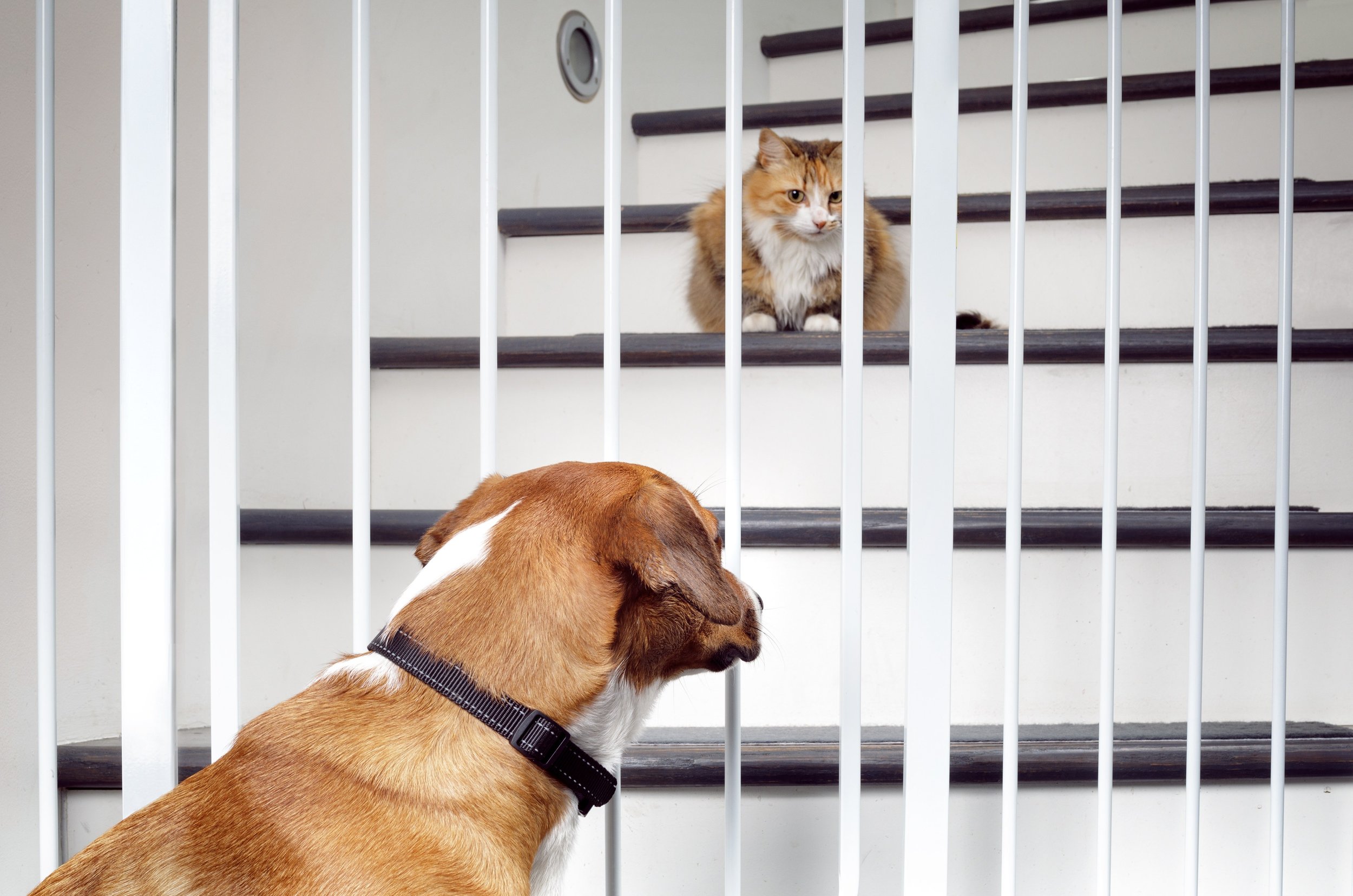6 ways to protect your pets (inc pet friendly house alarms)
Now it's obviously extremely important to protect your family and the home you live in, however with 45% of the population owning pets ..and lets be honest, they are a part of the family, its daunting unless we really understand how these new security measures will affect our pets.
Get a pet-friendly house alarm. Not only will a home alarm warn your pets if an intruder enters your property, but many systems also have cameras that can connect to your smartphone to ensure you can keep an eye on your best friend when you aren’t home. Additionally, some home alarm systems enable you to speak with your pets when they get distressed to help calm them down.
Pet-Friendly Alarm Systems (PIR Alarms)
If you have a pet it’s important to buy a pet-friendly burglar alarm, to prevent regular false alarms, when your pets are moving around the house. Thankfully, a lot of home alarms are pet-friendly or can be configured in a way that enables them to be.
Pet-friendly alarms work using Passive Infra-red Motion Sensors (PIR’s).
PIR alarms work by detecting heat signatures when something moves across the sensor’s field of view. A room’s heat signature remains pretty constant when nobody is there, however, as soon as somebody enters the room, the infrared emitted will trigger the alarm.
A PIR sensor is able to tell the difference between the weight of a small to medium-sized pet and a human. They can also be placed in a way that ensures their field of view sits a certain height above floor level as shown below.
PIR pet-friendly alarm systems are usually suitable for pets up to 35-40kg. For those of you with larger pets, a standard PIR burglar alarm may not be suitable however there are other alarm detectors you can put in place, such as shock sensors or opening sensors at points of entry to your property.
Tip: Because PIR sensors are sensitive to both heat and movement they are mostly used indoors
Tips for pet safety
A home alarm system isn’t the only way to protect your pets. In fact, there are many other precautions you can put in place, to ensure their comfort and safety when you are away from them.
Get a pet-friendly alarm: Not only will a home alarm warn your pets if an intruder enters your property, but many systems also have cameras that can connect to your smartphone to ensure you can keep an eye on your pets when you aren’t home. Additionally, some security cameras enable you to speak with your pets when they get distressed to help calm them down.
Introduce your pets to your neighbours: and anyone else you know who lives locally. This makes sure that if your furry friend happened to escape people in your local area recognise them, and can notify you of their whereabouts, or even return them safely. If you're lucky enough to have pet lovers living around you it may even mean they can check on the when you are away for a prolonged time.
Close the blinds: in the rooms in which your pet stays while you are out of the house. This both hides your pets from possible intruders but also is a good health and safety measure to ensure your pets aren’t exposed to direct sunlight for a prolonged period of time.
Get outdoor security cameras: Rarely considered are the option of outdoor cameras. With an average of 5 dogs stolen every day in 2017 in the UK, it’s important to ensure your pets are protected in the outside areas of your home minding their own business. As well as helping to prevent and catch burglars, these security cameras can also provide some help if your pets decide to take themselves on a private walk in a random direction.
Pet stair Gate
5. Dog safety gates: Use dog safety gates in your home. It is advised that a dog gate is placed at the bottom/top of the stairs to prevent them from falling, and this is especially important if your dogs, are old, have weak legs/hips or have any neurological disorders. Additionally, a dog gate enables you to keep your dog in an enclosed area while you are out of the house and prevents them from charging at the front door when greeting guests, where they are at risk of escaping.
6. Pet insurance: Get pet insurance. No matter what measures you put in place to protect your pet, there is always a risk of them injuring themselves. Vet bills can be very expensive, and much more frequent as your pet gets older. Ensure you take out pet insurance so you know you can cover your vet bills should they need it. There is a lot of choice nowadays so be sure to compare pet insurance providers before committing and check out their ratings on Trustpilot.


